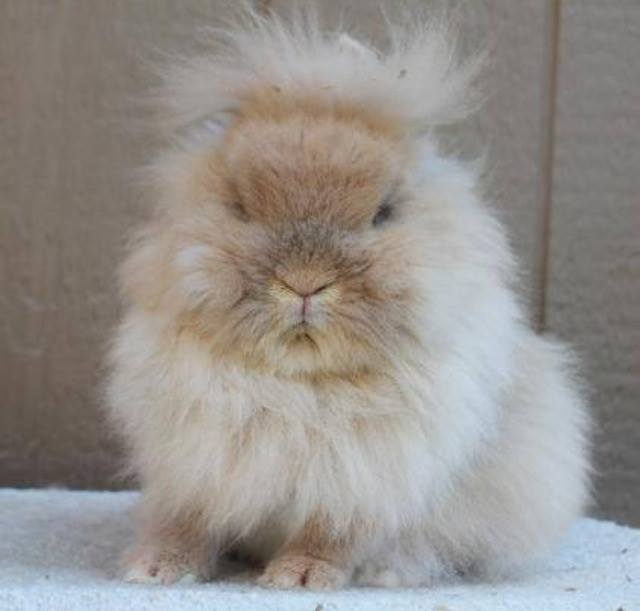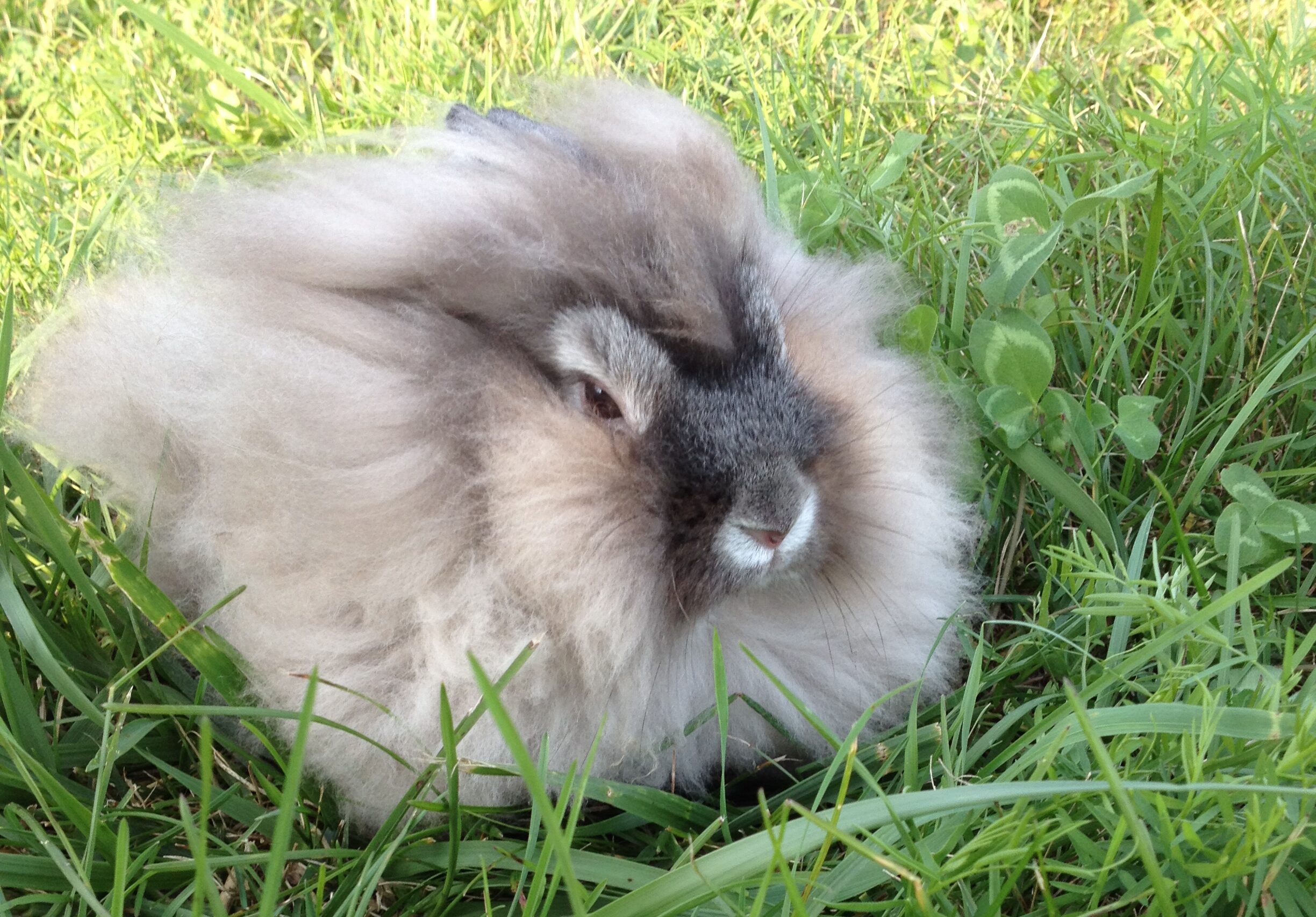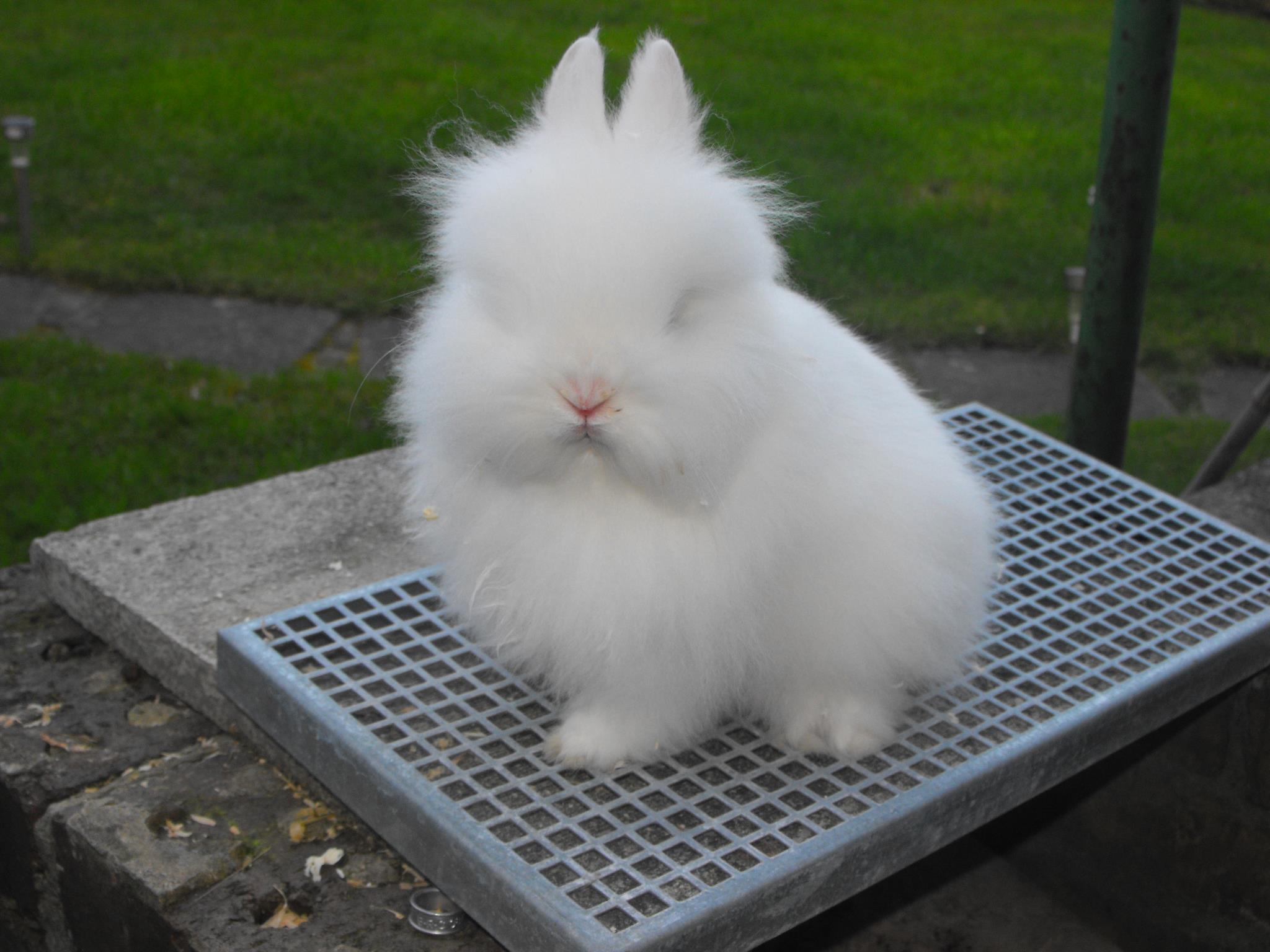Some of you might already be familiar with this special rabbit breed, and on the other hand, some might have never heard of them before. The breed has one feature that distinguishes itself from others, a unique mane of wool. This is why they are referred to as lionhead rabbits!
| Species Name | Oryctolagus cuniculus |
| Size | Small |
| Weight | Up to 4lbs |
| Lifespan | 8-12 years |
| Fur Type | Long |
| Temperament | Well-mannered and loves attention |
| Best Suited For | All types of rabbit owners |
| Similar Breeds | Holland Lop, Dutch, Netherland Dwarf, Jersey Wooly |
History & Origin of the Lionhead Rabbit Breed
The Lionhead rabbit is a breed that has existed for many decades, but it took until 2014 for the ARBA (American Rabbit Breeder’s Association) recognized them as an official domestic breed. Within the United Kingdom this breed was already recognized by the BRC (British Rabbit Council) in 2002.
Although there isn’t any confirmed evidence where the breed originates from, many believe that the lionhead rabbit breed was developed in Belgium in the 1990s by breeders who were attempting to create a small rabbit with a wool mane. They achieved this by crossing Swiss Fox rabbits, known for their dense coat, with Netherland Dwarf rabbits, known for their small size. The resulting offspring had a distinctive mane of wool around their head and neck, which gave them their name.
Lionhead Appearance & Varieties
Breed Appearance
Lionhead rabbits are small, compact animals that typically weigh between 2.5 and 3.5 pounds as adults. They have a round, cobby body type with well-developed hind legs and a short neck. Their head is wide with a short, broad nose, and their ears are medium-sized and upright.
The most distinctive feature of lionhead rabbits is their mane of wool, which grows around their head and neck and gives them their name. This mane is often longer and thicker on males than on females.

Coat Colors & Varieties
In terms of coat color, lionhead rabbits can come in a wide variety of colors and patterns. These include solid colors such as black, white, blue, chocolate, and lilac, as well as patterned varieties such as agouti (ticked), broken (a solid color with white markings), and harlequin (a pattern of white and a second color).
Lionheads can also have a combination of colors in their coat, such as black and white or blue and white. The lionhead breed is known for having a soft, dense coat that requires regular grooming to maintain its appearance.
Despite the wide variety of colors, there are some inconsistencies with official recognition. In contrast with the BRC that recognize all of the regular colors, the ARBA has only officially accepted some of them, such as Ruby Eyed White and Tortoise. Some others still have the certificate of development.
Behavior & Temperament
Lionhead rabbits are known for their friendly and playful personalities, making them great companions for people of all ages. They are generally easy to handle and enjoy interacting with their human caregivers. Like all rabbits, they are social animals and benefit from having regular interaction and playtime.
In terms of behavior, lionhead rabbits are generally active and curious animals, with some owners describing them as dog-like. They enjoy exploring their environment and playing with toys, such as balls, cardboard boxes, and tunnels. They are also known for their intelligence and can be trained to do simple tricks, such as coming when called or retrieving objects.
Lionhead rabbits can be territorial animals and may exhibit aggressive behavior towards other rabbits or animals if they feel threatened. It is important to provide them with plenty of space to move around and plenty of toys and activities to keep them entertained.
They are also sensitive to loud noises and sudden movements, as are most rabbits, so it is important to handle them gently and gradually introduce them to new situations. With proper socialization and care, lionhead rabbits can make loving and entertaining pets.
Who Are Lionhead Rabbits Good Pets For?
Since Lionheads are well-mannered small rabbits, they make great pet rabbits for young children. Although they might require some additional care and attention when compared with a more regular rabbit breed they are still very suitable for our youngest rabbit friends.
Moreover, they are known to be an excellent breed for young 4-H‘ers. Although they love attention, you shouldn’t worry about giving too little, they won’t get upset since they aren’t a breed that requires a strong personal connection. The only big difference in caring for them is that their mane needs some extra attention.
Housing a Lionhead Rabbit
Lionhead rabbits are small, intelligent animals that require a safe and comfortable environment in which to live. Proper housing is essential for their well-being, and can help to prevent common health and behavioral problems. In this section, we will discuss the various options for lionhead rabbit housing and provide some tips for creating the best home for your furry friend.
Enclosure
Creating the proper enclosure for a lionhead rabbit is an important aspect of rabbit care. The size of the enclosure should be large enough to allow the rabbit plenty of space to move around, stretch out, and play. A good rule of thumb is to provide at least 4-5 square feet of space per rabbit, with at least 2-3 feet of vertical space for them to hop and jump. A hutch or indoor cage can be a suitable enclosure for a lionhead rabbit, as long as it is large enough to meet their needs.
In terms of maintenance, the enclosure should be cleaned regularly to prevent the build-up of dirt and waste. This includes removing soiled bedding, cleaning the water and food dishes, and spot-cleaning any areas that are visibly dirty. The enclosure should also be checked regularly for any signs of damage or wear and repaired as needed. Providing plenty of fresh hay and water, as well as toys and activities to keep your rabbit entertained, will help to keep them happy and healthy.
Bedding
A good choice for bedding is a soft, absorbent material that is safe for rabbits to ingest, such as aspen shavings or paper-based bedding. Avoid using cedar or pine shavings, as the aromatic oils in these woods can be harmful to rabbits. The bedding should be changed regularly to prevent the build-up of dirt and waste, and the enclosure should be spot-cleaned as needed to maintain a clean and comfortable environment.
Temperature
It is important to keep lionhead rabbits in a temperature-controlled environment to ensure their comfort and well-being. The ideal temperature range for a lionhead rabbit is between 50 and 75 degrees Fahrenheit. Extreme temperatures can be harmful to rabbits, so it is important to avoid exposing them to extreme heat or cold.
They are sensitive to heat and can become overheated easily, so it is important to ensure that they have access to fresh water and a shaded area to help them stay cool. On the other hand, they are also sensitive to cold and can become chilled easily, so it is important to provide them with a warm, draft-free space to help them stay comfortable.
What Do Lionhead Rabbits Eat & Drink?
Lionhead rabbits require a diet that is high in fiber and low in sugar and fat. The majority of their diet should be hay, which provides the necessary fiber to keep their digestive system healthy. In addition to hay, lionhead rabbits should also be offered a small amount of fresh vegetables each day.
Some good options for vegetables include leafy greens such as lettuce, spinach, and kale, as well as vegetables like carrots, bell peppers, and broccoli. It is important to introduce new foods slowly and in small amounts to allow the rabbit’s digestive system to adjust.
In addition to hay and vegetables, lionhead rabbits also require a constant supply of fresh water. Water should be provided in a heavy, spill-proof bowl and should be changed daily to ensure that it is clean and fresh. It is important to monitor the rabbit’s water intake, as a sudden decrease can be a sign of illness. High-quality pellet food should also be offered as part of their diet, although this should not make up the majority of their intake.
Other Care Tips
Grooming
Proper grooming is important for the health and well-being of a lionhead rabbit. The breed is known for having a soft, dense coat that requires regular grooming to maintain its appearance. Grooming should be performed at least once a week, and more frequently during periods of heavy shedding.
To groom a lionhead rabbit, start by using a slicker brush or comb to gently remove tangles and mats from their coat. Pay special attention to the areas around the face, ears, and tail, as these areas are prone to tangles. After brushing, use a soft-bristled brush to smooth the coat and remove any remaining tangles.
Lionhead rabbits also benefit from regular nail trimmings to keep their claws at a healthy length.

Exercise
Lionhead rabbits are active, curious animals that benefit from regular exercise. Providing them with plenty of space to move around and play is essential for their physical and mental well-being. In addition to their regular enclosure, it is a good idea to provide your lionhead rabbit with a larger space, such as a pen or room, where they can have more room to hop and play.
You can also provide them with a variety of toys and activities to keep them entertained, such as balls, cardboard boxes, and tunnels.
Allowing your rabbit to have supervised playtime outside of their enclosure is also a great way to provide them with additional exercise. Regular exercise can help to prevent obesity, which can lead to a variety of health problems in rabbits.
Common Health Problems For the Breed
Lionhead rabbits aren’t prone to any breed-specific health problems, but can experience any of the problems that other rabbits face. These issues include, but are not limited to:
- Obesity – Obesity can be a particular concern for rabbits, as they are prone to gaining weight if they are fed a diet that is high in calories or if they do not get enough exercise.
- Overgrown/misaligned teeth – Dental problems, such as overgrown or misaligned teeth, are also common in rabbits and can cause discomfort and difficulty eating.
- GI stasis – Digestive issues, such as gastrointestinal stasis, can be caused by a variety of factors, including a diet that is low in fiber or a lack of water intake.
It is important to monitor your rabbit’s health and seek veterinary care if you notice any signs of illness. Providing your rabbit with a healthy diet, regular exercise, and a clean, comfortable environment can help to prevent many common health problems.
How Much Does a Lionhead Rabbit Cost?
The cost of a lionhead rabbit can vary depending on a number of factors, such as where you purchase the rabbit and the age and quality of the rabbit. Lionhead rabbits are generally more expensive than some other rabbit breeds due to their small size and popularity as pets.
On average, you can expect to pay between $50 and $100 for a lionhead rabbit from a reputable breeder. Prices may be higher for rabbits with rare or show-quality markings.
In addition to the initial purchase price, there are also ongoing costs to consider when owning a lionhead rabbit. These can include the cost of food, bedding, toys, and any necessary veterinary care. It is important to budget for these expenses and to do your research to ensure that you are prepared for the financial commitment of owning a rabbit.
Adopting a rabbit from a rescue organization can be a more cost-effective option, as these rabbits are often already spayed or neutered and may come with a discounted adoption fee.
Final Lionhead Rabbit Breed Thoughts
Lionhead rabbits can be suitable pets for a wide range of people, as long as they are prepared to provide the necessary care and attention. They are known for their friendly and playful personalities and can make great companions for people of all ages.
However, it is important to be prepared for the financial and time commitment of owning a rabbit and to do your research to ensure that you are able to provide the proper care.
If you are able to meet the needs of a lionhead rabbit, you’ll have a hard time finding a more interesting-looking and friendly breed, so I say: go for it!

